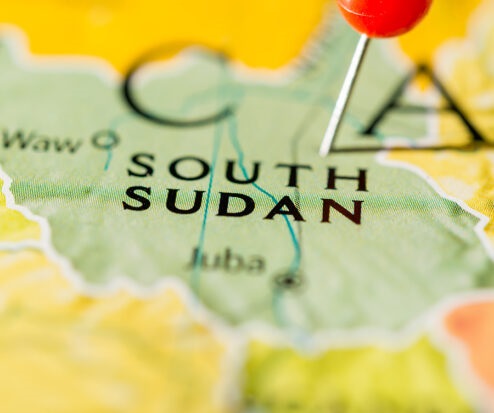
The case comes at a trying time for South Sudan, one of the world’s most impoverished countries, which is heavily reliant on oil exports for government spending
South Sudan | Felix Thompson | The African Export-Import Bank (Afreximbank) is suing the Republic of South Sudan for allegedly failing to repay US$657mn in trade and pandemic-related facilities.
Afreximbank has named both South Sudan’s government and central bank as defendants in the case, according to a London High Court filing that was made in April 2024 but only made public this week following a request by GTR.
Afreximbank, which bills itself as the “trade finance bank for Africa” and has a focus on boosting historically low levels of intra-African trade, is seeking to recover funds it provided under three separate agreements.
Under a 2019 facility, Afreximbank approved a US$400mn term loan for South Sudan that was intended to be used for trade-enabling infrastructure, “among other things”, the filing reveals.
Afreximbank then extended US$63mn to South Sudan under its Pandemic Trade Impact Mitigation Facility in August 2020, “supporting [its] working capital needs in light of the Covid-19 pandemic”, the court document shows.
In December 2020, Afreximbank and South Sudan entered into another pandemic facility worth US$250mn.
According to the filing, the deal was slated to boost South Sudan’s trade sector and fiscal position, while also helping with the procurement of medical supplies during the throes of the Covid-19 crisis.
Afreximbank argues this facility – and the two earlier deals – have now fallen into default.
The bank claims it is owed principal amounts of US$231mn, US$11mn and US$187mn, plus interest.
Afreximbank is also pursuing the Bank of South Sudan, which allegedly guaranteed the first and third of the facilities, the filings show.
Additionally, Afreximbank claims South Sudanese company Trinity Energy, along with related entities, provided security for the arrangements. Trinity supplies refined fuel products such as diesel and gasoline to the local market.
“Afreximbank does not presently bring proceedings to enforce that security, but reserves all its rights in relation to the same (and any other security that it holds in respect of the Republic’s liabilities),” the filing reads.
The case comes at a trying time for South Sudan, one of the world’s most impoverished countries, which is heavily reliant on oil exports for government spending.
“South Sudan faces several macroeconomic challenges, partly resulting from the spillovers of the war in neighbouring Sudan and recurrent flooding that have deteriorated economic and social outcomes. The pipeline that carries about 70% of South Sudan’s oil exports has been inoperable since February 2024,” the International Monetary Fund said in an October report.
A lawyer representing Afreximbank said at a court hearing in late January that the case is a “straightforward and simple debt claim to which there is no conceivable defence”.
He noted the overall quantum of the claim is a “large one” and as of January 2025, stands at US$657mn.
Afreximbank had been seeking a summary judgment from the High Court to force repayment of the debt. South Sudan and its Central Bank were not represented at the hearing.
The multilateral bank argued that South Sudan officials, and the central bank, were likely aware the hearing was taking place as emails and hard copies had been sent to both institutions – though there were bounce backs.
The lender’s legal team noted that South Sudan’s embassy in London had been relocated just months earlier, and the government had failed to provide forwarding details.
“We Afreximbank have taken all steps…. The inference is this is part of a strategy of ignoring the proceedings to which the defendants have no defence,” its lawyer said.
The current status of the case is unclear. The court has yet to publish a judgment and Afreximbank’s legal team has not responded to emails from GTR.
Afreximbank, Trinity Energy and South Sudan’s London Embassy were not immediately available for comment.
****
Source: Global Trade Review
 The Independent Uganda: You get the Truth we Pay the Price
The Independent Uganda: You get the Truth we Pay the Price



